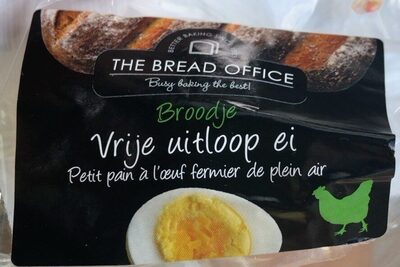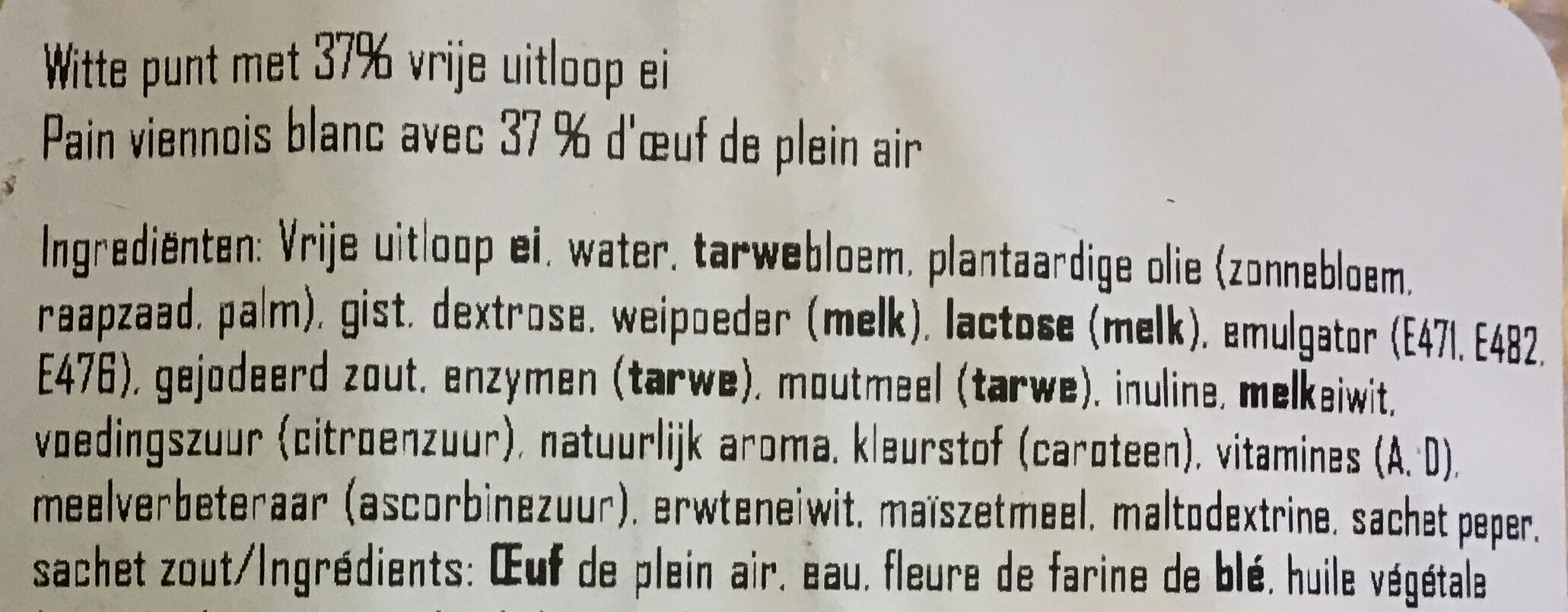Sandwich - The Bread Office - 109 g
This product page is not complete. You can help to complete it by editing it and adding more data from the photos we have, or by taking more photos using the app for Android or iPhone/iPad. Thank you!
×
Barcode: 8714368008241 (EAN / EAN-13)
Common name: Witte punt met 37% vrije uitloop ei
Quantity: 109 g
Packaging: nl:Beschermende atmosfeer, nl:Gekoeld bewaren, nl:Plastic film, nl:Plastic tray
Brands: The Bread Office
Categories: Sandwiches
Manufacturing or processing places: The Bread Office, Marconistraat 8, 8912 AX, Leeuwarden, Nederland
Countries where sold: Netherlands
Matching with your preferences
Environment
Packaging
Transportation
Threatened species
Report a problem
Data sources
Product added on by aleene
Last edit of product page on by aleene.
Product page also edited by kiliweb, openfoodfacts-contributors, yuka.sY2b0xO6T85zoF3NwEKvlkxlfISA-j7PMznkyFDW5decd8H3cPJ2u6LZIqg.










